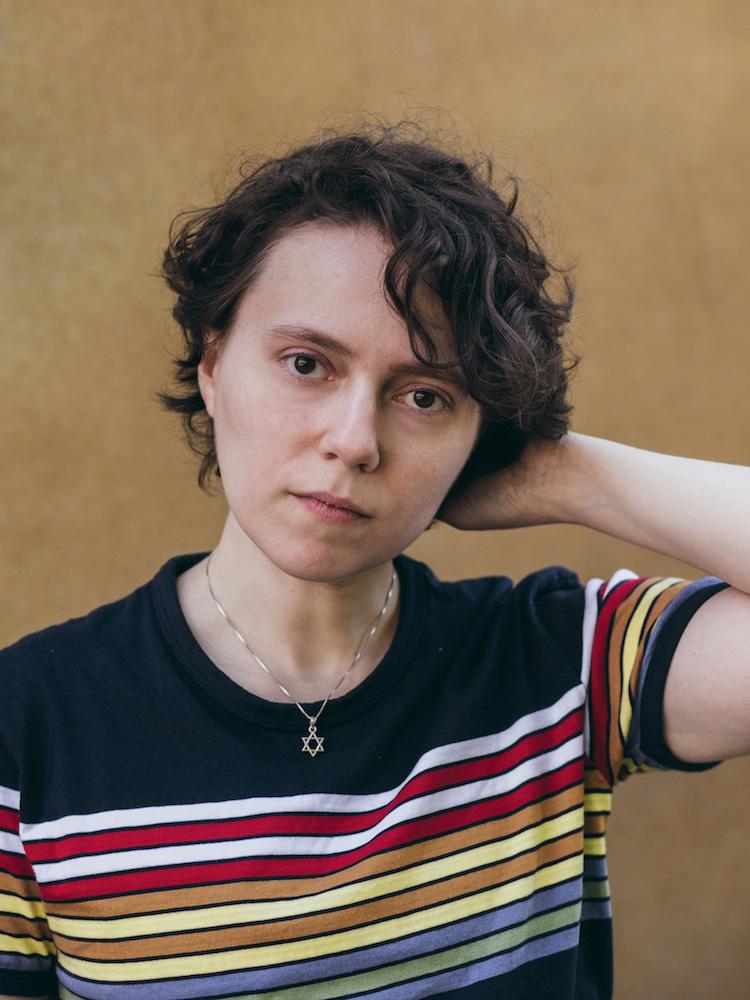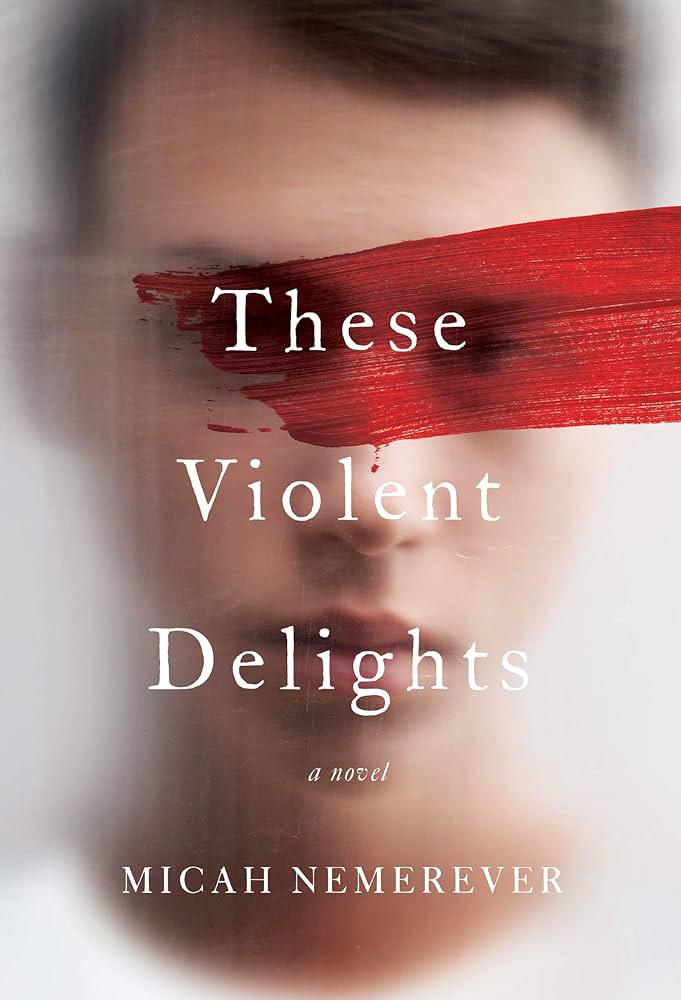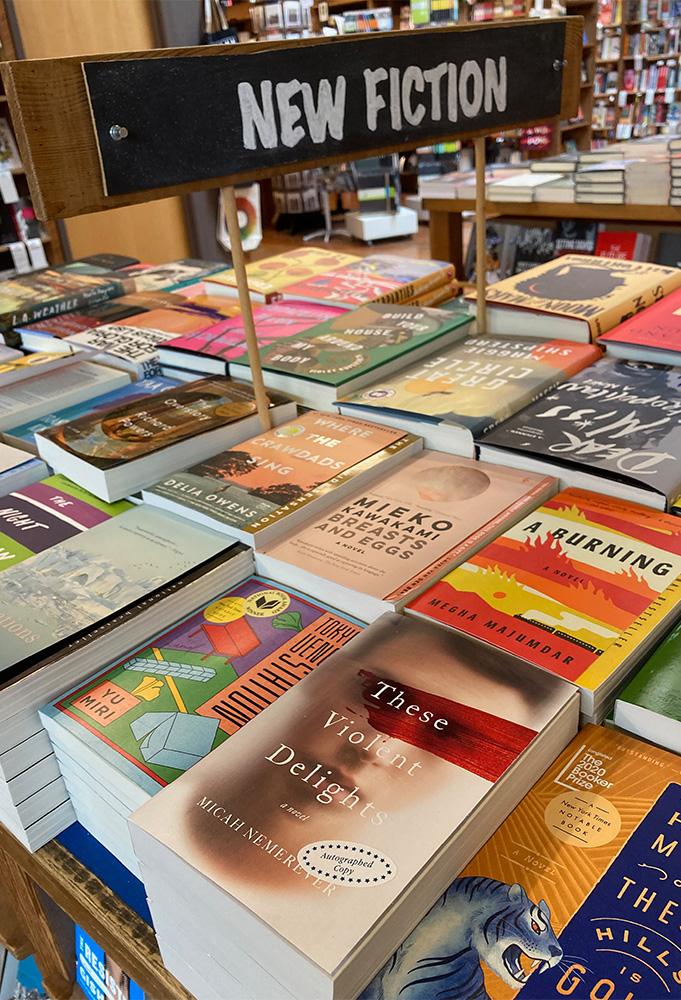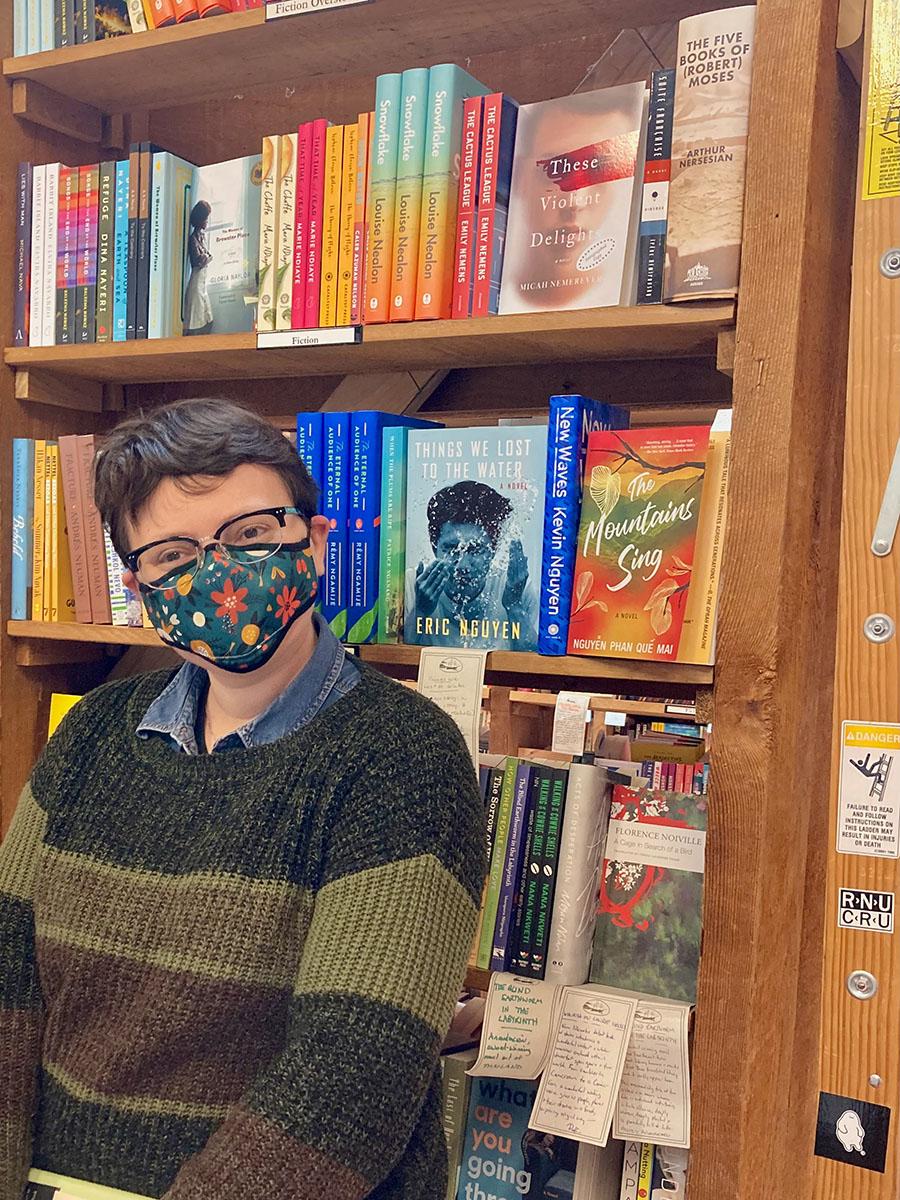This series highlights working artists currently on staff at the Frye Art Museum. The Frye has a wealth of talented Seattle-based artists working under its roof in many different capacities, each with their own dedicated arts practice outside of their work at the museum. Facilitated and written by Alexis L. Silva, Curatorial Assistant, this series is meant to highlight and celebrate these individuals, showcasing their amazing work and arts practices.

By Alexis L. Silva
It’s officially cozy season in Seattle, the time of year where most Seattleites are reluctant to leave the comfort of their homes unless it is absolutely necessary. Our tea and coffee stashes grow exponentially, and our pets become heated weighted blankets that get us through the chill of late fall. There is no better time to stop by your local bookstore and pick up a few good reads to get you through the long rainy nights.
While you’re shopping for your Fall 2023 must-reads, pick up a copy of These Violent Delights by Micah Nemerever—a novel that will definitely keep you from falling asleep too early. Following two collegiate boys and their dangerous obsession with each other, the story intertwines many different literary genres including dark academia, crime, and romance. When not writing books that make it on Oprah Daily’s Book Club list, Micah works at the Frye as our beloved Database Administrator. He manages the all-in-one relational database software that the museum utilizes for membership, fundraising, ticketing, event management, and communications.
Tell us about your background, have you always lived in Seattle? If not, what made you stay?
I was born and raised in Seattle—I grew up going to the Frye all the time, so I still get a kick out of being able to say I work here. I’ve lived all over the country as an adult, but I keep finding my way back to the Pacific Northwest. I think it’s one of the most beautiful places in the world, and it will always feel like home to me.
Tell us about your writing practice. How do you get started on writing something?
I always start with a little kernel of an idea, usually a mental image, and then it grows into something bigger once I start exploring it. These Violent Delights, for example, started out with an image of Paul, one of the main characters, collecting butterflies. One of my works in progress started out as a written sketch about a chess tournament taking place above the Arctic Circle. Things have a way of getting away from me and mutating into giant projects—all my novel-length projects started out as short stories. It’s one reason it takes me forever to finish anything!
What is your process in developing characters? Paul and Julian in These Violent Delights are so beautifully realized, what was your inspiration?
My stories always seem to start out with a dynamic between two characters, and the characters themselves grow out of that dynamic. With These Violent Delights, I knew I wanted to write about characters who genuinely love but also bring out the worst in each other. I thought about what that dynamic would look like in practice, and what kinds of people would come together emotionally in that way. Paul was the first character to come together, and Julian grew in around him along with the rest of the book.


What were some of the influences you came across while writing These Violent Delights and how have they impacted your writing today?
My influences for These Violent Delights were very eclectic. There’s a definite influence from Patricia Highsmith, especially the Ripley stories. Donna Tartt’s The Secret History and Shirley Jackson’s Hangsaman both had an effect on the sort of collegiate melancholy the boys have (and they’re both favorite books of mine just in general). I read and watched a lot of media about same-gender codependent relationships spiraling into violence, the most obvious of which is probably the film Heavenly Creatures. And there were other random influences, including visual art. The print The Hydrogen Man by Leonard Baskin affected me deeply when I saw it at Harvard Art Museum in 2011, and it struck a chord that ended up echoing while I was writing the book.
Now that I’ve moved on to other projects, my inspirations have more or less started from scratch. I’m reading a lot of nonfiction about chess and its subculture lately, because I’m writing a book about elite chess players and want to make sure I get the ambience right. But of course, your influences never really leave you even after you’re ostensibly done with them.
What are your top five favorite books/pieces of writing? What makes them your favorite?
My list of favorites changes all the time, but a few books I’ve enjoyed recently were State of Exile by Cristina Peri Rossi, I Know You Know Who I Am by Peter Kispert, The Lightness by Emily Temple, We Have Always Lived in the Castle by Shirley Jackson, and The Sea and the Bells by Pablo Neruda. My favorite novel of all time is probably One Hundred Years of Solitude—it’s a kind of storytelling I could only dream of being able to do, and it’s a monumental work of art.
Tell us about your vision for the future of the Seattle arts/writing community.
Like a lot of creative people, I worry about the cost of living and how it affects artists’ ability to live here—I’m lucky in that I have a day job that complements my creative practice, but many artists are in a more precarious financial position than I am, and it’s increasingly difficult to make that work in Seattle. Despite that, though, I feel optimistic overall. There’s so much going on at every level of the creative sphere, from the big flagship museums all the way to scrappy small presses and experimental galleries. Not every city can say it has an entire bookstore dedicated exclusively to poetry (Open Books)—or an art museum that’s completely free to visit. Seattle is a special place, and the artists and writers here are working incredibly hard to keep it that way.
Where can we find you? (socials, places the book is sold, etc.) Any new books in the works?
I’m on Instagram as @micahnem—though, since I’m between books right now, most of my updates lately have been about food and knitting rather than anything particularly literary. As for finding the book, I’m always in favor of shopping at your local independent bookstore! My personal favorites are Elliott Bay Book Company and Third Place Books, but Seattle has so many wonderful indies that you really can’t go wrong.
I have two novels in progress right now—one is a weird queer trans body horror love story, and the other is literary fiction about a family of chess prodigies. They have almost nothing in common with each other, but they’re both a lot of fun. Hopefully one of them will be finished in the next year or two.
